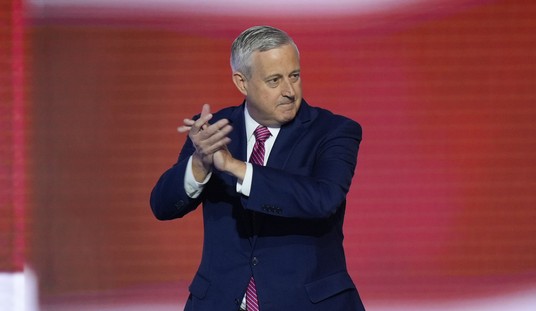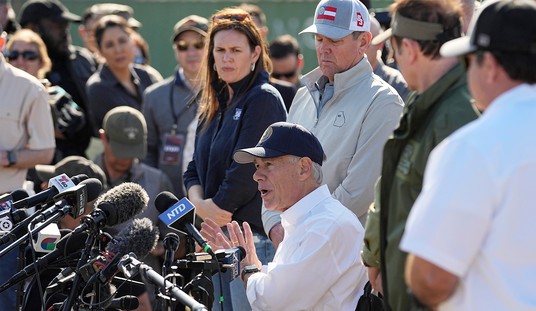Chief Justice John Roberts once said, "The job of a judge isn't to pitch or bat -- it's to call balls and strikes."
"Have you ever stopped to think about what it would be like to be a major league umpire? To know the fate of a game rests in your hands? What would it be like to suit up and call the shots each day?" wonders Christie Cowles, Editor/Producer for MLB.com.
Advertisement
We're about to see how much or little the U.S. Senate thinks about what it means to suit up and call the shots each day on the U.S. Supreme Court. Unless a majority of the Senate decides that the Court isn't a judicial training camp, President Obama's nominee, Elena Kagan will most likely be confirmed to the Court, despite lacking a single day's experience as a judge.
Senators should ask themselves if it should it be easier to qualify for a lifetime appointment as one of the top nine judges in the entire country than it is to become a major league umpire.
Compare the qualifications for becoming an MLB ump with Kagan's qualifications for the Court:
| Umpire |
Kagan |
| Go to school |
Check |
| Get noticed |
Check |
| Finish at the top of the class |
Check |
| Begin assignment in lower league |
None, Nada, Zilch |
| Wait for “the call” |
Check |
Kagan never spent a day calling a game in the legal equivalent of Bull Durham world. That's a big minus, don't you think? Umpires spend on average seven to ten years in the minors before making it to the majors. And "minors" means working up from the bottom of the "bush" leagues:
"It varies depending on openings, but normally an umpire spends a couple of years at the short-season level, a couple of years at Class-A, a couple of years at Double-A before he makes it to Triple-A," [Professional Baseball Umpire Corp. Director Mike] Fitzpatrick said. "Then it's just a matter of hoping any time after that, once he gets to the Triple-A level, that he's got a chance. But there again, it's long odds."
Recommended
Advertisement
By way of disclaimer, I'm not one of the "right-wingers" who immediately jumped on board President George W. Bush's nomination of Harriet Miers to the Court in 2005. Bush promoted Miers' nomination as outside "the judicial monastery."
As chief counsel for Concerned Women for America, I sent a memo with extensive questions to the White House seeking more information about Miers. When White House officials accused those of us who didn't endorse Miers' nomination of engaging in "sexism" and "elitism," I took them to task. When Miers' "sherpa" informed me that the White House wouldn't respond to my memo even though it deserved a response, I publicly called for her withdrawal from consideration. The White House announced Miers' withdrawal the following morning.
Obama thinks Kagan's record in the big leagues of law and academia qualifies her for the Court, despite her inexperience as a judge, which he thinks is a plus. Studying the game, writing about the game, and arguing about the game aren't the same as calling the game.
In her undergraduate thesis at Princeton, "Socialism in New York City," Kagan wrote what sounds like a lament to the demise of socialism, which is to the U.S. Constitution what "juicing" is to baseball.
As a law clerk to the late Supreme Court Justice Thurgood Marshall, Kagan advised him to vote against granting a hearing to a D.C. resident in a 2nd Amendment case: "The man's sole contention is that the District of Columbia's firearms statutes violate his constitutional right to 'keep and bear arms,'" Kagan wrote. "I'm not sympathetic." The Supreme Court was "sympathetic" to another D.C. resident's "sole contention" in 2008 when it struck down the D.C. law. Her pledge to defend the Heller decision as solicitor general doesn't mean she would support it as a member of the Court.
Advertisement
Tom Goldstein, writing for Scotusblog.com, concludes that based on her paper, "'Private Speech, Public Purpose: The Role of Governmental Motive in First Amendment Doctrine,' published in 1996 in the University of Chicago Law Review, Kagan contends that the primary purpose of courts reviewing speech restrictions should be to ferret out impermissible governmental motives -- not necessarily to protect individual expression or the marketplace of ideas."
As the first female dean of her alma mater, Harvard Law School, Kagan barred military recruiters from the school's recruiting office. She joined an amicus brief opposing the Clinton administration policy of prohibiting homosexuals from openly serving in the military. Kagan sent an e-mail to Harvard students in 2003 stating: "I abhor the military's discriminatory recruitment policy. ... This is a profound wrong -- a moral injustice of the first order."
Also while dean of Harvard, Kagan played a lead role in revamping the first-year curriculum that made international/comparative law mandatory, which is especially noteworthy given that the law school no longer requires students to take a constitutional law class, according to Terrence McKeegan, writing for Catholic Family and Human Rights Institute.
Obama appointed Kagan U.S. solicitor general in March 2009, even though she had never argued a case before the Court. As solicitor general, Kagan argued the Obama administration's position at the rehearing in Citizens United v. FEC, that political speech may be banned based on the speaker's corporate identity. Kagan admitted under questioning by Chief Justice Roberts that she was contending that the FEC could regulate pamphlets based on their political content. Tom Paine, call your office.
Advertisement
So let's imagine it's the World Series and the commissioner of baseball is picking the six umpires for the series. What if, instead of an experienced MLB ump, the commissioner picks:
- a sportswriter, or someone who worked for an ump, or who's had a little experience arguing with umps, but no experience as an ump?
- someone who's open to umps taking the lead in creating a more just game?
- a theorist who thinks it's okay for umps to consider the rules of cricket applied across the pond when making calls?
- an advocate who thinks that a team lacking "diversity" should be excluded from the series because it doesn't have any openly homosexual players?
- someone who thinks it's okay for an ump to ban a coach's signals if the ump's motive is redistribution of World Series championships?
If you don't want a rookie "ump" calling our nation's most important games, you might want to make some calls to the Senate.
























Join the conversation as a VIP Member